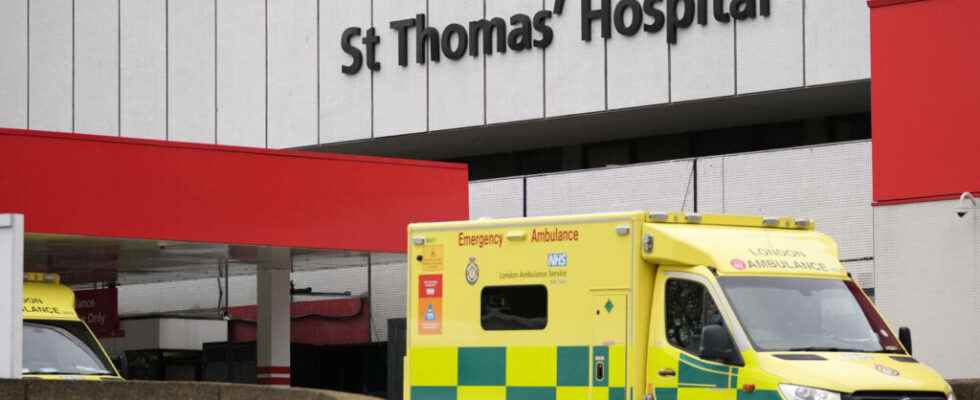The British health agency publishes a statement this week that has become almost habitual: if you are sick, work from home and wear masks. Is this a resurgence of Covid or other viruses?
From our correspondent in London,
If you take the metro, you will see many travelers sniffling, blowing their noses, sneezing or coughing loudly. There is the Covid, to a certain extent, but above all an epidemic of winter respiratory viruses, scarlet fever (especially in children) and influenza, which is particularly virulent this year. A cocktail made possible by the first completely free end-of-year celebrations for three years, without health restriction measures and with a somewhat diminished immunity due to successive confinements.
So that’s why the UK Health Agency recommends, but doesn’t require, Britons to be a little more careful and protect themselves from germs floating around in the winter air. And reminds eligible people that it’s not too late to get the flu shot.
Covid-19 and flu are still circulating. If you are aged 50 or over, pregnant or have certain health conditions, you are at higher risk of serious illness from these viruses this winter.
It’s not too late to have your vaccines and protect yourself
➡️ https://t.co/xD9FNcA96x pic.twitter.com/joMGb29fhw
— NHS (@NHSuk) January 3, 2023
►Also read: UK declares blood shortage in public hospitals and postpones operations
The public hospital in the midst of a crisis
There is of course the desire that everyone stays in good health, but above all, the authorities are trying to preserve the public hospital, because hospital admissions have already exploded, precisely for respiratory viruses and for the flu; +79% for this one the last week of December in England. More than one in ten beds is occupied by patients with Covid or the flu.
However, the context is complicated for the British public hospital, the National Health Service or NHS. Representatives of NHS doctors talk about the “ worst winter that they have known, because of this juxtaposition of viruses; worst winter while the previous two were marked by waves of the Coronavirus.
►Also read: United Kingdom: the historic rumble of hospitals is gaining momentum
But the public hospital is generally going through an unprecedented crisis. All the newspapers, all the radio programs broadcast these chilling testimonies: this nonagenarian who, after a fall and a probable hip fracture, had to wait nearly 36 hours for an ambulance to come and pick her up; this man stuck in the emergency room, on a wheelchair for more than a day while waiting to be operated on for an attack of appendicitis. Lines of ambulances in front of hospitals, these images which shocked during the pandemic, are now commonplace, explain health professionals.
This crisis is multifactorial (lack of beds, lack of professionals and lack of outside care) but the consequence is that patients are waiting longer and longer in the emergency room. The message from the authorities for several weeks is really to avoid emergencies as much as possible. This therefore requires protective measures to avoid contracting winter respiratory viruses, which are potentially fatal for the most vulnerable.
►Also read: UK faces worsening doctor shortage since Brexit
